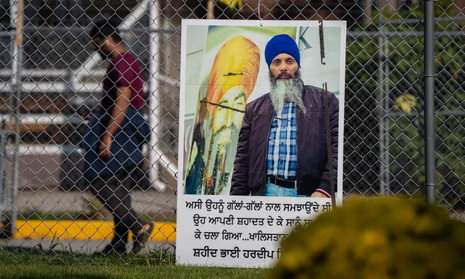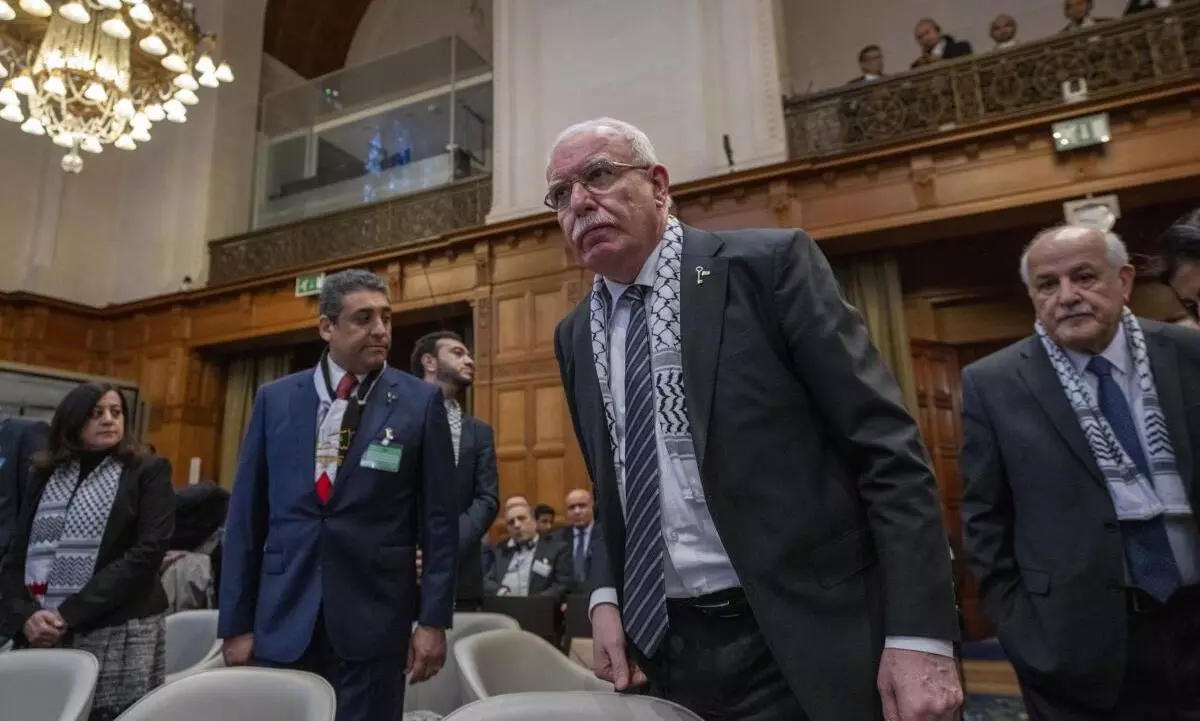
Top UN court opens hearings into Israel's occupation of Palestinian territories
text_fieldsThe Hague: Historic hearings opened on Monday at the United Nations' top court into the legality of Israel's 57-year occupation of lands sought for a Palestinian state.
The hearings are to last six days before the International Court of Justice (ICJ). Monday's session started with Foreign Affairs Minister Riyad al-Maliki speaking as a representative of the Palestinians.
The hearings follow a request submitted by the U.N. General Assembly for a non-binding advisory opinion into Israel's policies in the occupied territories.
Though the case opens at the court's Great Hall of Justice against the backdrop of the Israel-Hamas war, it focuses instead on Israel's open-ended control over the occupied West Bank, the Gaza Strip and annexed east Jerusalem.
The Palestinian legal team is expected to tell the panel of international judges that Israel has violated the prohibition on territorial conquest by annexing large swaths of occupied land and the Palestinians' right to self-determination, and has imposed a system of racial discrimination and apartheid.
 Also Read: Russia claims it took control of Ukrainian town of Avdiivka
Also Read: Russia claims it took control of Ukrainian town of Avdiivka
“We want to hear new words from the court,” said Omar Awadallah, the head of the U.N. organizations department in the Palestinian Foreign Ministry.
After the Palestinians address the court on Monday, an unprecedented 51 countries and three international organizations will speak. The court will likely take months to issue its opinion.
Israel is not scheduled to speak during the hearings but could submit a written statement.
Yuval Shany, a law professor at Hebrew University and senior fellow at the Israel Democracy Institute, said Israel will likely justify the ongoing occupation on security grounds, especially in the absence of a peace deal.
It is likely to point to the Oct. 7 attack in which Hamas-led militants from Gaza killed 1,200 people across southern Israel and dragged 250 hostages back to the territory.
However, Palestinians and leading rights groups argue that the occupation goes far beyond defensive measures. They say it has morphed into an apartheid system, bolstered by settlement building on occupied lands, that gives Palestinians second-class status and is designed to maintain Jewish hegemony from the Jordan River to the Mediterranean Sea.
 Also Read: Bilawal Bhutto discloses power-sharing proposal from Nawaz Sharif's party
Also Read: Bilawal Bhutto discloses power-sharing proposal from Nawaz Sharif's party
Israel rejects any accusation of apartheid. Israel captured the West Bank, east Jerusalem and the Gaza Strip in the 1967 Mideast war.
The Palestinians seek all three areas for an independent state. Israel considers the West Bank to be a disputed territory, whose future should be decided in negotiations.
It has built 146 settlements across the West Bank, according to watchdog group Peace Now, many of which resemble fully developed suburbs and small towns. The settlements are home to more than 500,000 Jewish settlers, while around 3 million Palestinians live in the territory.
Israel annexed east Jerusalem and considers the entire city to be its capital. An additional 200,000 Israelis live in settlements built in east Jerusalem that Israel considers to be neighbourhoods of its capital.
Palestinian residents of the city face systematic discrimination, making it difficult for them to build new homes or expand existing ones.
Israel withdrew all of its soldiers and settlers from Gaza in 2005 but continued to control the territory's airspace, coastline and population registry. Israel and Egypt imposed a blockade on Gaza when the Palestinian militant Hamas group seized power there in 2007.
The international community overwhelmingly considers the settlements to be illegal. Israel's annexation of east Jerusalem, home to the city's most sensitive holy sites, is not internationally recognized.
It's not the first time the court has been asked to give an advisory opinion on Israeli policies.
In 2004, it said a separation barrier Israel built through east Jerusalem and parts of the West Bank was “contrary to international law.” It also called on Israel to immediately halt construction. Israel has ignored the ruling.
Also, late last month, the court ordered Israel to do all it can to prevent death, destruction and any acts of genocide in its campaign in Gaza. The order came at a preliminary stage of a case filed by South Africa accusing Israel of genocide, a charge that Israel denied.
South Africa's governing party, the African National Congress, has long compared Israel's policies in Gaza and the West Bank to the apartheid regime of white minority rule in South Africa, which restricted most Black people to “homelands” before ending in 1994.
With PTI inputs























